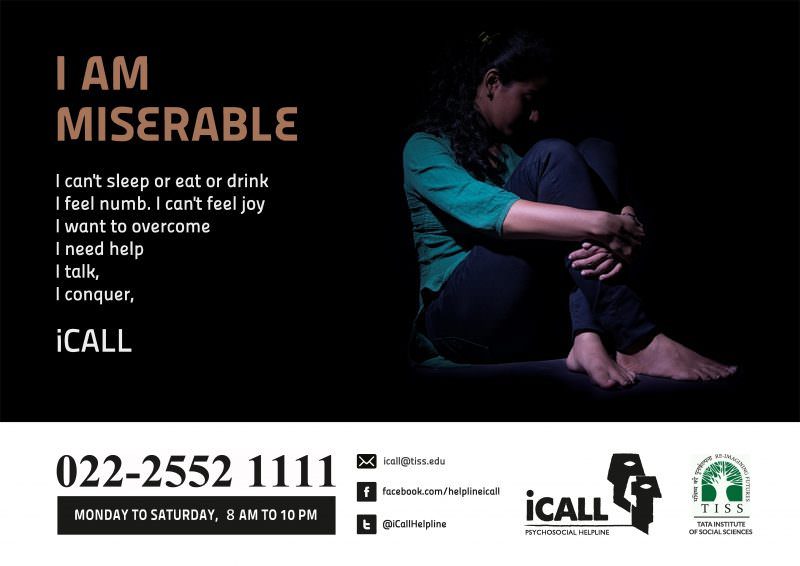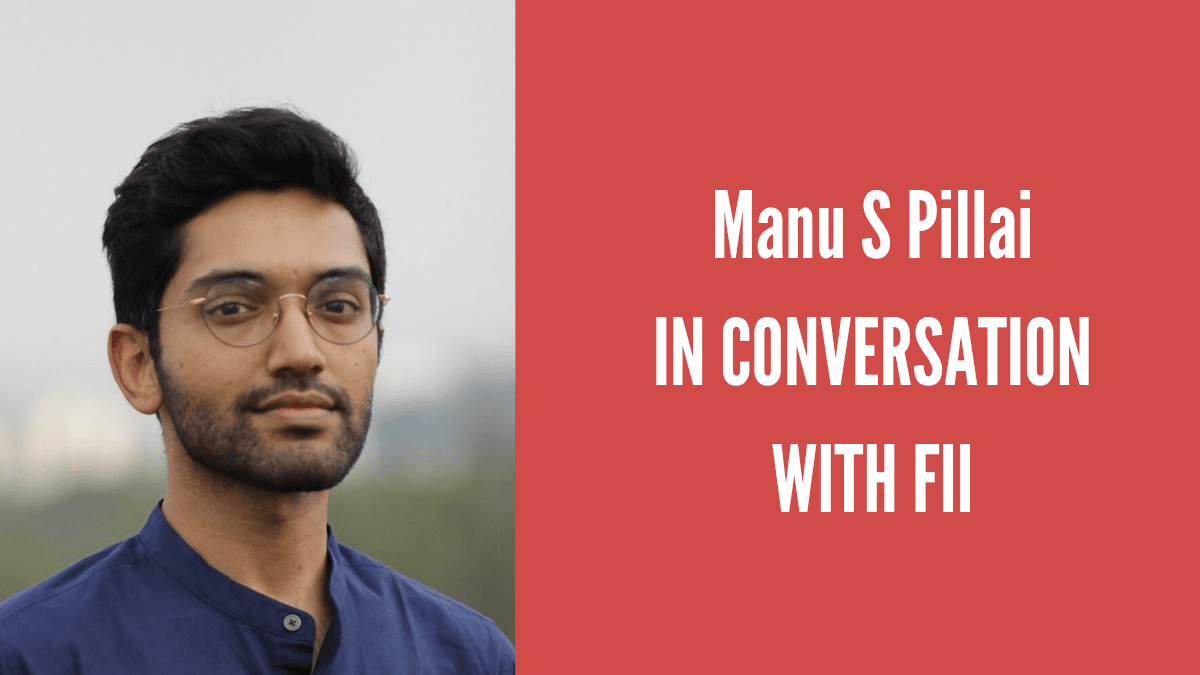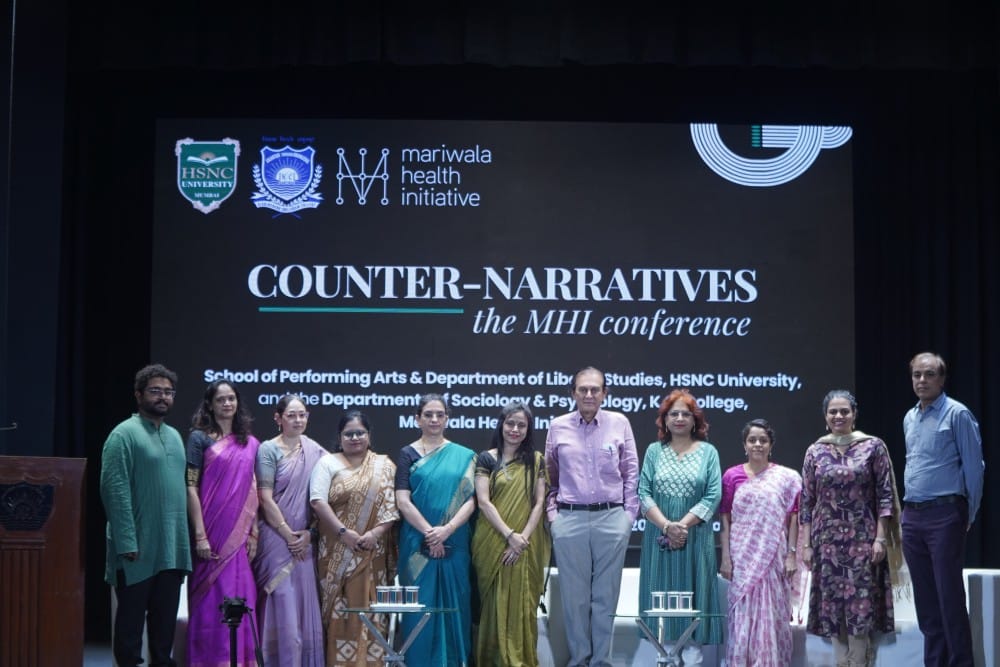iCall is a helpline run by the Tata Institute of Social Sciences. It provides counselling and support to people from across India via phone and email and through this addresses some of the vast gaps that exist in the mental healthcare landscape in India. We spoke with Paras Sharma, Programme Coordinator of the iCALL helpline to learn more about the set up of the helpline, the work it is doing currently and plans for the future.
1. What was the motivation behind setting up iCall? Who were the people involved? What were the biggest challenges in setting up?
iCALL started as a field action project of the School of Human Ecology at the Tata Institute of Social Sciences. In 2009, the school started the first two year programme in the history of the institute focusing solely on counselling psychology to develop trained and qualified mental health professionals. After a successful three years, the school realized that along with developing future professionals, it was also necessary to address the existing mental health needs of people. Dr Sujata Sriram (Dean, School of Human Ecology) and Ms Aparna Joshi (Centre Chairperson, School of Human Ecology) were the driving forces behind the initiation of iCALL. They initially wished to set up a counselling centre and approached the institute director Prof S Parasuraman, who suggested the idea of a pan-India helpline. The institute offered the infrastructure and seed money to start the helpline to provide professional counselling and emotional support to clients across issues, age groups, languages and socioeconomic strata, free of cost.
The biggest challenge for us was that no one else was doing something like this at the time. We called existing helplines for a national level consultation and learned that most of them either had volunteers or had professionals who worked with them on part-time basis. There was no helpline with supervised full-time professionals. The other big challenge was to get the word about the helpline out there with no publicity budget or media access whatsoever.

2. Could you share more about the people who call in – is there a demographic profile you notice or is it more varied? Is this Mumbai-specific or for people across the country? How does the email system work?
The helpline caters to people across age groups, gender identities, sexual orientations, languages and most importantly, across issues. We get calls from all over India – in fact, 70% of calls come from locations outside of Mumbai. The email based counselling service is free-of-cost. We have an email address, icall@tiss.edu where people can write to us. When people send an email, there is an immediate auto-response that acknowledges one’s mail and informs them about the helpline’s services. A counsellor then responds to them in 24-48 hours.
3. Tell us about the folks who respond to the helpline queries — what are their professional backgrounds? Their experiences in this helpline?
We have a team of 12 counsellors, each with a minimum qualification of a Master’s degree in either Clinical Psychology or Counselling Psychology. We have a young team, with our youngest team members in their early-twenties, having just completed their Master’s degrees, while the older ones like myself are either in our late-twenties or early thirties. I speak on behalf of everyone when I say that no one anticipated to see the breadth of issues that we receive on this helpline. The work is rewarding both in terms of work satisfaction, as well as professional growth and we are all thrilled that the helpline has been received so enthusiastically by people all over the country.
4. What have been some of the main challenges in operating the helpline, especially given that there is a big gap in provision of mental health services?
The challenges are many, here’s a quick overview of some of them:
• Finding the right professionals to run the helpline
• Keeping counsellor fatigue and burnout at bay
• Raising funds for the sustainability of the helpline
• Getting the word about the helpline to people
• Continuous training and support for our counsellors to keep up with the kind of issues that come to us
• Dealing with high workloads

5. What are the helpline’s plans for the future?
We are currently working towards is our own website, which will not only have information about the helpline, but also resources on various issues pertaining to mental health and emotional well-being. This is because there is a dearth of indigenous, user-friendly material on mental health, especially tele-mental health in India. We are always looking to partner with state governments, academic institutions and corporates to increase our reach across the country. We aim to take the helpline seven days a week and eventually 24*7 as and when it becomes feasible for us.
6. Are there any resources you would recommend for people looking to understand mental health issues or those struggling with mental health?
iCALL’s telephone helpline, as well as our email based counselling service in itself provides a lot of information and psycho-education. Additionally from an Indian perspective, I think the White Swan Foundation has some great reading resources in multiple languages.

All images courtesy iCall Helpline
iCall has also set up a crowdsourced list of mental health professionals across the country. You can check it out here.
About the author(s)
Feminist and Indian. Interests include gender, education, mental health and wellness. India/US.




